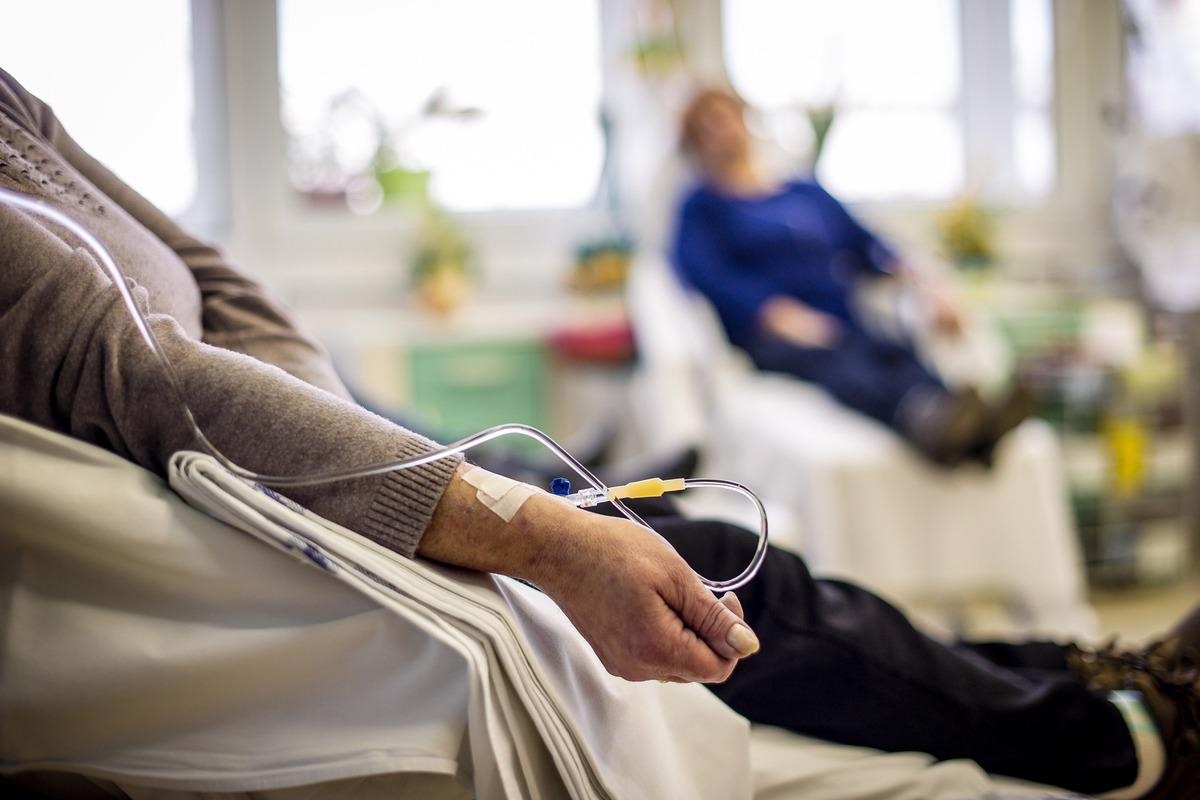In a recent study posted to the medRxiv* preprint server, researchers analyzed severe acute respiratory syndrome coronavirus 2 (SARS-CoV-2) outcomes by cancer status, treatment, type, and SARS-CoV-2 vaccination.

Background
The coronavirus disease 2019 (COVID-19) pandemic has resulted in over two million cases and 35,000 deaths in Michigan. Observational investigations have recognized individuals with cancer as a possible subpopulation at increased risk of severe COVID-19 and SARS-CoV-2-linked death.
Previous studies found that cancer patients have a higher risk of COVID-19-related death, yet it is unclear how this relationship differs by cancer site, cancer therapy, and SARS-CoV-2 vaccination status. Given the dramatic drop in the availability of and demand for cancer services such as urgent referrals and chemotherapy attendance during the COVID-19 pandemic, it is paramount to determine how cancer diagnosis and treatments related to SARS-CoV-2 diagnosis and outcomes.
About the study
In the current study, the researchers assessed whether cancer diagnosis enhances the likelihood of SARS-CoV-2-associated hospital admission, intensive care unit (ICU) admission, 60-day all-cause death, and severe COVID-19, i.e., any of the previous outcomes.
From March 10, 2020, through February 2, 2022, the team identified 259,893 people who were tested for or diagnosed with SARS-CoV-2 infection using electronic health record (EHR) information from the University of Michigan, a large academic medical facility.
The team used Firth-corrected, covariate-adjusted logistic regression to analyze the connection between cancer type, cancer status, and cancer therapy and four SARS-CoV-2 outcomes: COVID-linked hospital admission, intensive care unit (ICU) admission, death, and a cumulative "severe COVID-19" outcome that combines the first three. They also investigated the impact of cancer diagnosis and treatment timing association with diagnosis of SARS-CoV-2 infection and the influence of COVID-19 vaccination.
Results
The study results indicated that among the 41,218 people who tested positive for SARS-CoV-2 infection, 10,266 had a cancer diagnosis in the past or present. The authors found that cancer status was linked with superior severe COVID-19, SARS-CoV-2-related hospitalization, and 60-day all-cause death rates congruent with prior studies. Since no relationships were detected among people who had their first cancer diagnosis more than three years earlier, the driving force behind these connections were patients whose most recent first cancer diagnosis was during the last three years.
Cancer patients undergoing chemotherapy exhibited strong associations to all four SARS-CoV-2 outcomes including severe COVID. In addition, as the time since the latest chemotherapy treatment increased, this link weakened but remained substantial after three years or more. On the contrary, neither radiation nor surgery was linked to poorer COVID-19 outcomes. However, the sensitivity assessments indicated that the latest radiation-only therapy might be correlated with severe SARS-CoV-2 infection, COVID-19-related hospitalization, and ICU admission.
Regarding cancer types, lung cancer and hematologic malignancies were substantially linked to a greater risk of SARS-CoV-2-linked hospitalization. While hematologic malignancies were connected to COVID-19-associated ICU admission and death, breast cancer, prostate cancer, and melanoma were not linked to poor COVID-19 outcomes. Researchers discovered that cancer patients receiving chemotherapy were still linked to greater odds of severe COVID-19, 60-day all-cause death, and hospitalization even when excluding hematologic malignancies. While scientists found these links credible, they are likely exaggerated since chemotherapy might be a proxy for individuals with advanced cancer.
COVID-19 vaccinations were observed to minimize the frequency of the four COVID-19 outcomes regardless of cancer status. However, even among vaccinated individuals, those with cancer had a higher chance of severe COVID-19 than people without cancer.
Conclusions
The present research shed light on the link between cancer diagnosis, therapy, cancer type, COVID-19 vaccination, and SARS-CoV-2 outcomes. The study findings suggest that specific cancer diagnoses such as lung cancer and hematologic malignancies and cancer therapies like chemotherapy were linked to poor SARS-CoV-2 outcomes. Also, COVID-19 vaccines minimize the likelihood of severe SARS-CoV-2 outcomes in both cancer patients and non-cancer patients. The present study indicated that even after the COVID-19 vaccination, the cancer patients were still at greater risk of developing SARS-CoV-2 breakthrough infections and having more severe COVID-19 outcomes.
These data could assist in identifying risks and developing tailored treatment and preventative efforts in cancer patients against SARS-CoV-2 infection. The authors stated that future studies should consider post-acute sequelae of COVID-19 (PASC) as a SARS-CoV-2 outcome and examine more extensively the impact of cancer types, therapies, and SARS-CoV-2 vaccination on the COVID-19 outcomes.
*Important notice
medRxiv publishes preliminary scientific reports that are not peer-reviewed and, therefore, should not be regarded as conclusive, guide clinical practice/health-related behavior, or treated as established information.
- Maxwell Salvatore, Miriam M Hu, Lauren J Beesley, Alison Mondul, Celeste Leigh Pearce, Christopher R Friese, Lars G. Fritsche, Bhramar Mukherjee. (2022). COVID-19 outcomes by cancer status, type, treatment, and vaccination. medRxiv. doi: https://doi.org/10.1101/2022.04.19.22274047 https://www.medrxiv.org/content/10.1101/2022.04.19.22274047v1
Posted in: Medical Research News | Medical Condition News | Disease/Infection News
Tags: Breast Cancer, Cancer, Cancer Diagnosis, Cancer Therapy, Chemotherapy, Coronavirus, Coronavirus Disease COVID-19, covid-19, Electronic Health Record, Frequency, Hospital, Intensive Care, Lung Cancer, Melanoma, Pandemic, Prostate, Prostate Cancer, Research, Respiratory, SARS, SARS-CoV-2, Severe Acute Respiratory, Severe Acute Respiratory Syndrome, Surgery, Syndrome

Written by
Shanet Susan Alex
Shanet Susan Alex, a medical writer, based in Kerala, India, is a Doctor of Pharmacy graduate from Kerala University of Health Sciences. Her academic background is in clinical pharmacy and research, and she is passionate about medical writing. Shanet has published papers in the International Journal of Medical Science and Current Research (IJMSCR), the International Journal of Pharmacy (IJP), and the International Journal of Medical Science and Applied Research (IJMSAR). Apart from work, she enjoys listening to music and watching movies.
Source: Read Full Article
